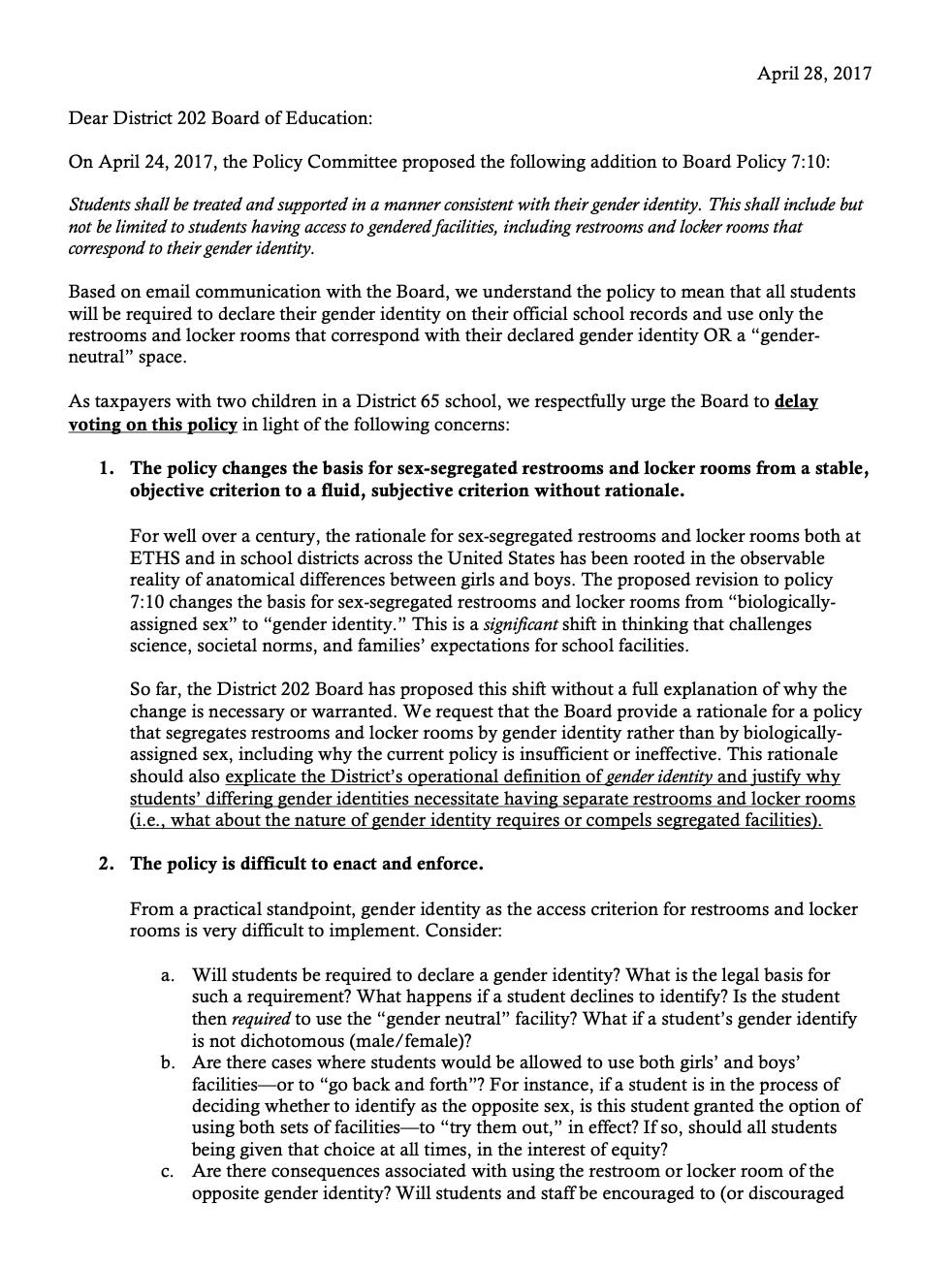For those who feel like they are getting nowhere...
Nearly eight years after opposing boys in the girls locker room, the response to events in Deerfield 109 is encouraging
This post is a bit 'off-topic’ for me, but my friend Shannon Adcock and her organization Awake Illinois drawing national attention to girls being expected to share a locker room with a male student prompted me to revisit and reflect on my fight against similar policies eight years ago.
Recent events in a northern Illinois school district have brought the issue of locker room use based on gender identity into the national spotlight, but this debate is far from new.
Chicago-area parents may the 2017 case the ACLU brought against a northwest suburban district on behalf of a male student who wanted to use facilities designated for females. I was aware of the looming battle even before the lawsuit was filed, for two reasons.
First, I worked directly with schools in Illinois and across the United States. Second, the high school district where we lived—in Evanston, Illinois—had proposed a policy change earlier that year.
For those unfamiliar with Evanston, it is a demographically diverse city known for its liberal and progressive views. Though we’re generally conservative or libertarian on most issues, we never minded being in the ideological minority.
Unfortunately, after the 2016 presidential election, the values and decisions of Evanston’s publicly funded entities shifted even further to the left.1 Transgender bathroom policies were just one arena in which any real discussion was closed off with all-or-nothing proposition—either you support this or you or you are a hateful awful person and we have no home for you here.2
The increasingly intolerant tone didn’t stop us from speaking up when the high school board announced its intent to change the rules regarding access to gendered facilities. I won’t recount the full extent of our correspondence—which also included emails with the K-8 district board—but the letter below illustrates the tack we took.
Readers may disagree with our position, but it’s fair to say our approach was logical, not hateful, and presented a specific and reasonable request. We wanted a robust rationale and further public discussion before a vote was taken. However, that didn’t happen, and the board went ahead voted yes on the policy revision.
I have no regrets about the stand we took—or about pushing back on ideology-related issues in the elementary schools that arose and later became controversies in districts across the U.S. and beyond, including the display of religious symbols on school property, compelled participation in activist activities, BLM curriculum, and mandatory gender identity lessons.
As difficult as is was to find like-minded people to speak out or co-sign letters, we were not alone, and names of allies who joined or encouraged our dissent are burned on my brain: Amy, Joe, Heather, Johan, Kelly, Pete, Anne Marie, Julie, Ike, David, Bethany, Job, Ben, and many others.
On the gendered facilities front, my 2025 self maintains that the basis of segregated spaces for girls and boys is biological. There is no defensible reason to grant more rights to students who are struggling with their biological sex than to those who are not. In other words, one subgroup of students shouldn’t have the option to choose between the girls' space or the boys' space.
Many more and better reasons could be given but, thankfully, with people like J.K. Rowling, Jennifer Sey, Riley Gaines, and my friend Shannon being so articulate and tireless around this and related issues for the past few years (and before), the arguments are well-known, superbly-expressed, and impeccably branded.
Looking at Nicole Georgas’ fight against the Deerfield 109 school board on behalf of her daughter, I am reminded that standing for or against something as a minority can feel awful and discouraging and pointless in the moment. You may bang your head against a wall, shout into the void, get called a bunch of names, and fail to persuade anybody to change their mind or act against what they already decided to do.
Only years later, under circumstances created by that which what you opposed, does the issue get the full attention it deserves, in ways and through means you didn’t expect.
FTR, we did not vote for Trump or Clinton.
We moved in 2021, after 14 years and for COVID-related reasons, but knew a number of people who were, quite literally, driven out of town having been unjustly and publicly accused of racism.






